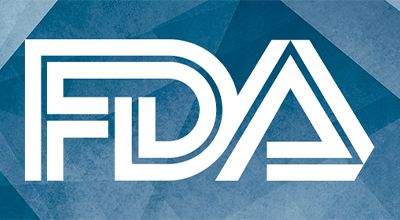FDA Is Investigating Potential Secondary Cancer Risks Associated CAR T-Cell Therapy
There have been reports of T-cell malignancies among patients who have undergone CD19- or BCMA-directed autologous CAR T-cell immunotherapies.
FDA Is Investigating Potential Secondary Cancer Risks Associated CAR T-Cell Therapy

According to the FDA, there have been reports of T-cell malignancies, including CAR-positive lymphoma, developing in patients who had previously undergone CD19- or BCMA-directed autologous CAR T-cell therapies. These reports are based on postmarketing adverse event (AE) data sources as well as clinical trials.1
The FDA has determined that the risk of T-cell malignancies is apparent in all currently approved CD19- and BCMA-directed genetically modified autologous CAR T-cell immunotherapies, including:
- Idecabtagene vicleucel (Abecma), which is indicated for the treatment of adult patients with relapsed/refractory multiple myeloma who have received at least 4 prior lines of therapy, including an immunomodulatory agent (IMiD), a proteasome inhibitor (PI), and an anti-CD38 monoclonal antibody.2
- Lisocabtagene maraleucel (Breyanzi), which is indicated for the treatment of adult patients with large B-cell lymphoma (LBCL) who have disease that is refractory to frontline chemoimmunotherapy or that has relapsed within 12 months of frontline chemoimmunotherapy; disease that is refractory to frontline chemoimmunotherapy or that has relapsed after frontline chemoimmunotherapy and are ineligible for hematopoietic stem cell transplantation because of age or comorbidities; or disease that is refractory or has relapsed after at least 2 lines of systemic therapy.3
- Ciltacabtagene autoleucel (Carvykti), which is indicated for the treatment of adult patients with relapsed/refractory multiple myeloma who have received at least 4 prior lines of therapy, including an IMiD, a PI, and an anti-CD38 monoclonal antibody.4
- Tisagenlecleucel (Kymriah), which is indicated for the treatment of patients 25 years of age and younger with B-cell precursor acute lymphoblastic leukemia (ALL) that is refractory or in second or later relapse; adult patients with relapsed/refractory LBCL who have received at least 2 prior lines of systemic therapy, excluding those with primary central nervous system lymphoma; and adult patients with relapsed/refractory follicular lymphoma who have received at least 2 prior lines of systemic therapy.5
- Brexucabtagene autoleucel (Tecartus), which is indicated for the treatment of adult patients with relapsed/refractory mantle cell lymphoma and adult patients with relapsed/refractory B-cell precursor ALL.6
- Axicabtagene ciloleucel (Yescarta), which is indicated for the treatment of adult patients with LBCL that is refractory to frontline chemoimmunotherapy or that has relapsed within 12 months of frontline chemoimmunotherapy, as well as adult patients with relapsed/refractory LBCL who have received at least 2 prior lines of systemic therapy.7
The FDA emphasizes that although the benefits of these products in their indicated uses continue to outweigh their potential risks, it is investigating the identified risk of T-cell malignancy, which may have serious outcomes, such as hospitalization and death.1 The agency is evaluating whether regulatory action pertaining to this risk is necessary.
All gene therapy products with integrating lentiviral or retroviral vectors, including CD19- and BCMA-directed genetically modified autologous T-cell immunotherapies, are labeled with a United States prescribing information class warning for the development of secondary malignancies. The initial FDA approvals of these products included postmarketing requirements per Section 505(o) of the Federal Food, Drug, and Cosmetic Act for investigators to conduct 15-year observational follow-up safety studies for the purpose of assessing the long-term safety profiles of these products and the risk of developing secondary malignancies after treatment.
Patients being treated with these CD19- and BCMA-directed genetically modified autologous T-cell immunotherapies should receive life-long monitoring for the development of new malignancies. If a patient develops a new malignancy after receiving treatment with these products, they should contact the respective product’s manufacturer to report the incident and receive instructions regarding the collection of patient samples that will be tested for the presence of the CAR transgene.
Suspected AEs, including T-cell malignancies, related to these products can be reported to the FDA at 1-800-FDA-1088 or www.fda.gov/medwatch.
Health care providers, clinical investigators, caregivers, and patients with questions about these products can contact the FDA’s Center for Biologics Evaluation and Research at ocod@fda.hhs.gov.
References
- FDA investigating serious risk of T-cell malignancy following BCMA-directed or CD19-directed autologous chimeric antigen receptor (CAR) T cell immunotherapies. News release. FDA. November 28, 2023. Accessed November 29, 2023. https://www.fda.gov/vaccines-blood-biologics/safety-availability-biologics/fda-investigating-serious-risk-t-cell-malignancy-following-bcma-directed-or-cd19-directed-autologous
- Abecma. Prescribing information. Bristol-Myers Squibb; 2021. Accessed November 29, 2023. https://packageinserts.bms.com/pi/pi_abecma.pdf
- Breyanzi. Prescribing information. Bristol-Myers Squibb; 2022. Accessed November 29, 2023. https://www.fda.gov/media/145711/download
- Carvykti. Prescribing information. Janssen Biotech; 2023. Accessed November 29, 2023. https://www.fda.gov/media/156560/download
- Kymriah. Prescribing information. Novartis; 2022. Accessed November 29, 2023. https://www.fda.gov/media/107296/download
- Tecartus. Prescribing information. Gilead; 2021. Accessed November 29, 2023. https://www.fda.gov/media/140409/download?attachment
- Yescarta. Prescribing information. Gilead; 2022. Accessed November 29, 2023. https://www.fda.gov/media/108377/download



